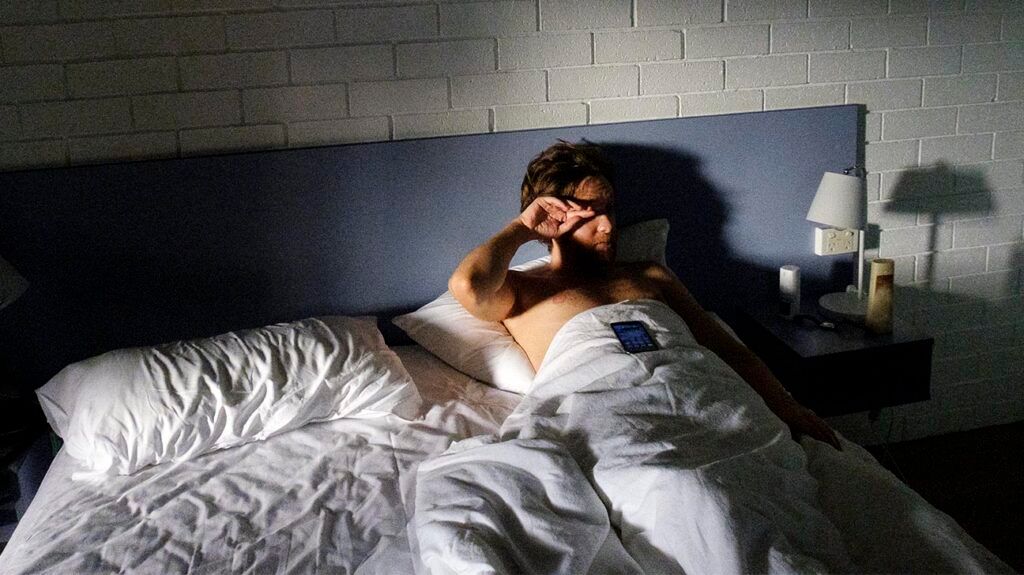Epilepsy is a brain disorder that causes seizures. Certain triggers can increase the chance of experiencing a seizure. Learning to recognize and avoid known triggers can help people with epilepsy manage their symptoms.
Individuals with epilepsy experience recurrent seizures. In some cases, they may occur with no clear cause. However, they can also occur in response to epilepsy triggers, which may vary between individuals.
This article explores some common epilepsy triggers in more detail, including sleep deprivation, flashing lights, alcohol consumption, and stress. It also discusses when a person may need to speak with a doctor.

According to the World Health Organization, epilepsy affects
Some people with epilepsy have seizures after exposure to certain triggers. Each individual may experience unique triggers, but some of the more common epilepsy triggers may include:
- sleep deprivation
- flashing, flickering, or bright lights
- stress
- substance or alcohol use
- missing medication doses
- hormonal factors, such as menstruation
- dehydration
- illness or infection
- taking certain medications
- low blood sugar
Individuals who experience epileptic seizures may benefit from recording seizure times and possible triggers. This can help with identifying and avoiding triggers in the future.
Sleep deprivation is a seizure trigger for many people with epilepsy. Factors that can cause sleep deprivation may include:
- certain anti-epileptic medications
- mental health conditions, such as depression or anxiety
- consuming caffeine, nicotine, and other stimulants
- using electronic devices close to bedtime
- changes to a person’s sleep schedule
Research suggests individuals with epilepsy are also at a higher risk of certain sleep disorders. They are more likely to experience the following:
- sleep apnea
- insomnia
- daytime tiredness
Sleep deprivation can increase the frequency of epileptic seizures. It can also worsen overall epilepsy symptoms.
To avoid this risk, it is important for people with epilepsy to prioritize getting enough sleep. Avoiding caffeine at night may help improve sleep quality. Exercising regularly and going to bed at the same time each night may also help.
Certain individuals with epilepsy may experience a seizure after exposure to flashing lights. This may be a result of a heightened sensitivity to light.
Research has shown that people with epilepsy are more likely to have photosensitivity, which is when a person’s brain is more sensitive to light sources than usual. These sources may include flashing lights, video games, or TV shows.
In one study, brain scans indicated that
Consuming alcohol can also trigger seizures in some people with epilepsy. Research suggests this may occur because of alcohol’s effect on the central nervous system.
Another study found that alcohol’s effect on individuals with epilepsy may depend on the amount they consume. The authors concluded that binge drinking carries a higher risk of triggering seizures than social drinking.
Additionally, the researchers suggested that alcohol may increase the risk of other triggers. For example, consuming alcohol can have a negative effect on sleep quality. This could lead to sleep deprivation, which can also trigger an epileptic seizure.
Some individuals with epilepsy have more seizures during times of stress. This may happen due to chemical changes that stress can cause in the brain.
Reducing stress levels may be a helpful management technique for people who experience epileptic seizures. Stress reduction techniques may include:
- regular physical activity
- meditation
- spending time with loved ones
- keeping a healthy sleep routine
- making time for fun activities, such as singing or dancing
- learning time management techniques and establishing routines
Stress may occur as a response to daily stressors, like a heavy workload or traffic jam. However, people with epilepsy may also experience chronic stress with certain mood disorders, such as depression.
Individuals experiencing symptoms of depression or other mental health conditions can speak with a healthcare professional about treatment for these conditions. This may help reduce stress levels and decrease the risk of seizures among some people with epilepsy.
Epilepsy causes different types of seizures that can range in frequency and severity. In some instances, it may not be necessary to see a doctor after a mild seizure.
However, individuals experiencing a seizure need emergency attention if they:
- have a seizure that lasts
longer than 5 minutes - are experiencing breathing difficulties
- have a seizure in water
- experience an injury during the seizure
- continue having multiple consecutive seizures
- have never had a seizure before
- are pregnant
- have another health condition, such as heart disease or diabetes
- have another seizure soon after the first one
Keeping track of seizures may help people with epilepsy identify potential triggers. They may wish to consider sharing these notes with a doctor to learn more about trigger identification and management.
Epilepsy resources
Visit our dedicated hub for more research-backed information and in-depth resources on epilepsy and seizures.
Epilepsy is a condition that causes frequent seizures. These seizures may occur without a clear cause or due to certain triggers.
Some common epilepsy triggers include sleep deprivation, flashing lights, alcohol consumption, and stress. However, triggers may vary between individuals with epilepsy.
People can speak with a doctor to learn more about the triggers of epileptic seizures. A healthcare professional can provide individualized advice for managing potential triggers.
